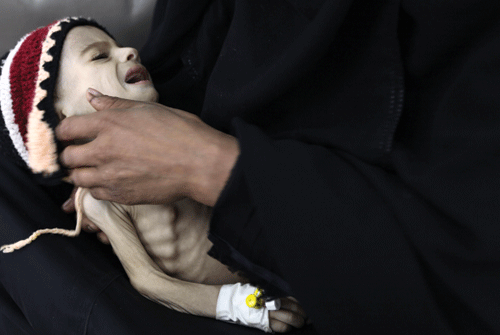Perhaps most of Yemen’s problems, if properly addressed, could be resolved within a short or medium timeframe — that is, except for the issue of tribes. Nothing in the country is more complex than its tribes. Even if not immediately apparent on the surface, tribal connections influence almost every aspect of Yemeni society and interaction, and lay the framework sustaining many of the country’s other problems.
The tribal system has existed in Yemen for thousands of years, but never quite in as problematic a form as it does now. Historically, the sheikhs that led the tribes represented the interests of their people before the national government, a setup that made practical sense given Yemen’s rugged geography and remote communities. Today, however, the focus of most sheikhs has turned to using their positions to concentrate wealth and power for themselves and their families. These tribes have, in many ways, replaced the role of the state, and become mini-states inside the state. A tribal sheikh acts as businessman, contractor, judge, lawyer, governor and every other type of bureaucratic functionary for his people. Some even have their own prisons for those who would disobey their tribal rule of law.
Economically, the impact has been terrible. Yemeni economists have estimated that 80 percent of the country’s income goes to a 2 percent segment of the population, with tribal sheikhs being among the most powerful of these elites. Having more than one salary from different government agencies, Yemenis even joke that some sheikhs get salaries as martyrs even if they are living.
Though still a problem in Southern Yemen, the power of sheikhs is weaker there, given that it had been curbed during the communist years before the 1990 reunification. The north, however, is a mess, where, since Yemen’s revolution in 1962, the power of the tribes has been continually shifting. When former President Ibrahim al-Hamdi tried to enforce the rule of law and weaken the sheikhs’ power in 1977, he was assassinated. Recently deposed President Ali Abdullah Saleh took a very different approach during his three-decade rule, empowering the sheikhs and legitimizing his rule with tribal support, while fueling wars between those tribes that challenged him.
The so-called “war on terror” is only complicating the issue, with the West allying with tribes to fight Al Qaeda in Yemen. Western cash and support is now a new source of wealth and corruption for tribal leaders, and has been counterproductive in terms of counter-terrorism. If the existence of Al Qaeda is bringing you money, would you really try to kill them off?
For the last few decades, Yemeni tribal leaders have also had monthly salaries from regional powers; from Saudi Arabia to Iran, Qatar and even from Libya’s Muammar Qaddafi, cash poured in. It was as if tribal leaders were saying to Saleh: “You get paid by the Americans, we get paid by others.” Some were even getting paid by two opposing countries at the same time and working to achieve both agendas, such as Libya’s and Saudi Arabia’s.
In April, the Yemeni Parliament tried to pass the annual budget, including $60 million for the tribal sheikhs. This incited rage around the country, especially among the youth who still occupy many of the city squares around Yemen. This amount was actually only a small portion of what sheikhs used to get from the former regime every month as a guarantee for their loyalty to Saleh. For the first time, Yemenis spoke publicly against this practice, and prime minister himself went into the street and promised not to pay the sheikhs. In response, the sheikhs held a national conference, condemning the prime minister and accusing him of trying to “explode a crisis in the country.”
At the same time, international humanitarian organizations and Yemeni government were begging the world to fund the $262 million shortfall in funding for humanitarian crisis response operations in Yemen; more than 1 million children suffer from acute malnutrition and more than 10 million Yemenis do not have enough to eat, according to the director of Save The Children in Yemen, Larry Farrell. Yet while humanitarian aid organizations call on the world to save Yemen from a catastrophe, and the World Bank warns of Yemen running out of oil to fund itself, both of them seem to overlook the millions of dollars still being funneled to the tribal sheikhs — money that could go a long way in help Yemen feed its own children and solve its own problems.








